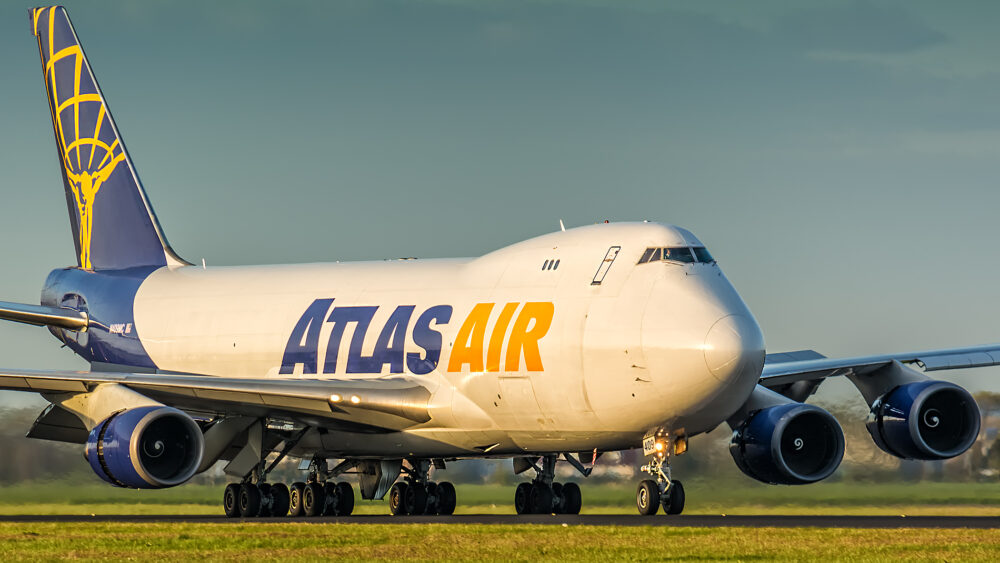An Atlas Air Boeing 747-400F flew a transatlantic mission on Monday using sustainable aviation fuel (SAF). The test flight flew from Spain to Mexico, and Atlas Air ran the operation as it tests and examines ways to become a more environmentally friendly carrier.

The transatlantic mission
Atlas Air flew a Boeing 747-400F from Spain’s Zaragoza Airport (ZAZ) to Mexico City International Airport (MEX). The flight, number 562, was powered by a blend of fuel. This fuel contained 2.33% SAF, sourced from fresh vegetable oil. Atlas Air stated they believed this to be the first transoceanic commercial cargo flight in Spain to include a blend of SAF and Jet A-1 fuel.
John W. Dietrich, President and Chief Executive Officer of Atlas Air Worldwide, stated the following in a press release viewed by Simple Flying:
“Innovative sustainable aviation fuel test projects demonstrate our ability to partner with our customers and suppliers to help create a more sustainable future for the air cargo industry and global commerce. Through ongoing meaningful partnerships, we will drive wider acceptance and availability of SAF, which will lower costs and have a positive impact on our industry and the environment.”
Onboard the aircraft, Atlas Air flew a shipment of cargo from an Atlas customer.

The fuel for the test flight
The blend of fuel came to Zaragoza via Madrid. Atlas Air partnered with Exolum, a subsidiary of CLH group, and utilized its Avikor platform to implement the trial. The fuel, being adaptable, means airlines do not have to make any additional adjustments to fuel or engine components.
The fuel itself was certified according to international standards. The SAF component itself was certified for sustainability in accordance with International Sustainability & Carbon Certification (ISCC) guidelines.
Sustainable aviation fuel
Atlas Air is looking to become a greener air carrier. The airline noted that sustainable aviation fuel has been shown to reduce carbon emissions by up to 80%. The carrier has been working with partners to ensure the safety and environmental benefits of SAF in order to further its commercial viability.
SAF is a growing trend in aviation, as more and more carriers start to use them as a means to reduce carbon emissions and make airlines a greener operation.

SAFs come from a variety of sources. Lufthansa was planning on making SAF from sunlight, while others use cooking oils or non-palm waste oil, and still, others use solid waste.
The important thing about SAF is that it has an adaptability that makes it easier to use in existing operations. Carriers have to make few modifications to their operations, aircraft, or infrastructure to power aircraft with the greener fuel. It is not perfect and does not reduce 100% of emissions, but it is a good start for an industry looking to become more environmentally friendly.
Many airlines, including Delta and United, have announced major commitments to becoming greener, usually with a significant financial investment, showing their interest in becoming greener.
Are you glad to see Atlas Air fly a Boeing 747-400F on SAF? Do you think more airlines should use SAFs? Let us know in the comments!
[ad_2]
Source link


